





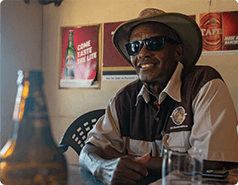
In the 1980s, 56 Namibian children were raised in socialist Czechoslovakia. The special educational program of the Namibian liberation movement SWAPO and the Communist Party of Czechoslovakia aimed to raise children into a new generation of politically aware elite.
This political experiment failed in the early 1990s due to fundamental political changes in both countries. The children were forcibly resettled to Namibia, unable to culturally adapt - without completing basic education and without any language and psychological preparation. The filmmakers searched for traces of now-adult Namibian children and followed their fates both in Namibia and in the Czech Republic for three years. To this day, black Czechs remain trapped in the memories of their idyllic childhood in Czechoslovakia, which they consider their true home.
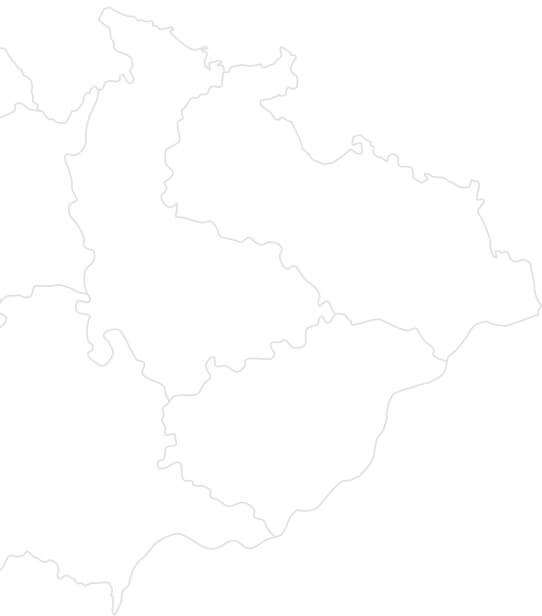

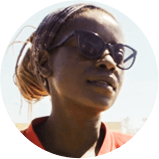
Saima is a Namibian Czech, a single mother, the daughter of a fallen war hero, who after returning from Czechoslovakia to Namibia experienced a very difficult growing up in the village. After her mother died, Saima found herself in her uncle's family, which received her poorly. After several failed attempts to escape, her family labeled her as possessed by demons and forced her to undergo a purification ritual with a traditional healer. Saima, who never got used to life in Namibia, wanted to return to the Czech Republic more and more, as she considered it her only home. Her lifelong dream, to start a new life in the Czech Republic and to meet again with her Czech adoptive family from Prachatice (Hadovi), came true after 28 years. Saima came to the Czech Republic together with her former classmate Nepolo in June 2019 and met her family from Prachatice. Currently, she works as a baker in Benešov. The film follows the confrontation of her memories, dreams, and expectations with reality. Her disillusionment with life in the Czech Republic and above all her experience with a serious racially motivated attack gradually rids her of all illusions and the feeling of a safe home.

Nepolo is a Namibian Czech, the son of "tate Nujom" - referred to as the father of all Namibian children in Czechoslovakia. After leaving Czechoslovakia, he lived in a small village in the north of Namibia, where he was raised by his grandmother (his father's mother). Nepolo developed a strong emotional bond with her that continues to this day. In Namibia, he made a living occasionally as an electrician, running a private bar and bakery. Nepolo feels that he is a proud Czech, he is troubled by the fact that he has almost lost his knowledge of the Czech language. His lifelong dream was to return to the Czech Republic, raise his two children there, and work as an electrician. In June 2019, he succeeded, and he returned to Prachatice, where he grew up as a child. He works here in a German company for the production of electro-coils and meets a lot of old and new friends. In his free time, he plays football or visits his former coach Jarda at his cottage. He regularly spends every Christmas with his father and children in Namibia. This year, Nepolo plans to get married and bring his Namibian wife and children to Prachatice. He considers the Czech Republic his home.
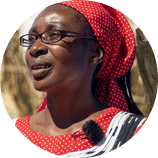
Penny is a Namibian Czech living in the Katutura slum in the capital of Namibia. She currently works as a nurse in a private psychiatric clinic. Penny is very friendly and sometimes too caring and anxious in taking care of others, which is why she also earned the nickname "grandmother" in Czechoslovakia. After returning to Namibia, Penny found herself in a village, with a foster family that did not take her well. Beatings, hardships, and misunderstandings almost drove her to commit suicide. Fortunately, she was adopted by a former Namibian teacher, Rosalie, who lived with the Namibian children in Czechoslovakia. Penny moved to Windhoek, where she was reunited with her classmates from Czechoslovakia - who she now considers her only "family". For a long time, Penny did not give up the dream of finding her real mother, whom she vaguely remembered from the refugee camp in Angola. After several years of searching, she found her, however, seriously mentally ill as a result of the war traumas she had experienced. Penny speaks fluent Czech and considers herself Czech. In the Czech Republic, she studied medicine for several years in Pilsen at the Charles University Second Faculty of Medicine. Unfortunately, she did not finish her studies. She is still looking for suitable conditions for her return to the Czech Republic, where she would like to work as a nurse.
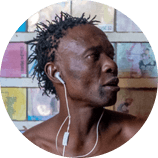
Kauna is a single, childless Namibian Czech living in a rented tin in a slum in the capital of Namibia, where he makes a living as an occasional marijuana dealer. Kauna is a joker, a dreamer, an outsider, and a bit of a weirdo who closes himself in his world of Czech fairy tales, movies, and posters of naked white women, which he believes will protect him from African witchcraft. He has a strong savior complex, he tries to help white people in Namibia who find themselves in poverty. Kauna has his own philosophy of life, based on non-stop listening to Michael Jackson's music, ritual smoking of marijuana, and regular consumption of copious amounts of milk. Kauna keeps himself in excellent physical condition through regular exercise. He acquired these sports habits in Prachatice when he attended a skiing and boating club led by coach Jarda. At the turn of the millennium, his path as a university student in the Czech Republic was not successful. He is hostile to ordinary Namibians, whom he calls "the natives". Kauna is a loner and an individualist, but he does not refuse to participate in meetings of Namibian Czechs, where he entertains others with his fluent Czech slang.
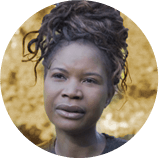
Nangula is a still-smiling Namibian Czech living in London for a long time, from where she regularly returns to the Czech Republic, which she considers her home. She travels mainly to Bartošovice, where she visits her best friend from childhood, Jana, and her family. Returning to the castle in Bartošovice, where she grew up as a child, Nangula remembers the happy, but also the unhappy, days she spent there. She does not hesitate to speak publicly about the bullying and sexual abuse of children by Namibian educators in Czechoslovakia, traumas that she still processes within herself today. Shortly after returning to Namibia, Nangula was given the opportunity to study at a university in the Czech Republic. She graduated from the Faculty of Education of Charles University in Prague and also started a career as a teacher at a primary school. In the end, however, fate sent her to the path of modeling and acting, which she devoted herself to in the Czech Republic for several years. Like others, her heart is where her childhood memories live.
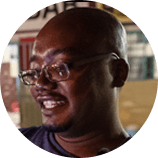
Joe is a rich and successful Namibian Czech who works in the north of Namibia for the Office of the President of Namibia, where he is in charge of the agenda to help people with disabilities. He considers the Czech Republic his home, but he does not hide his disillusionment with the current xenophobic Czech society, which did not accept him as the Czech he feels he is during his studies at the university in České Budějovice. Currently, he lives in his own house in the north of Namibia, where he is raising his three-year-old daughter Růženka. His closest friends are former classmates from Czechoslovakia, with whom he goes out for a beer, but he doesn't get along very well with other Namibians. It took him a long time to find his way back to his mother after a long separation, but he never became emotionally attached to her. He wants to return to the Czech Republic. He has a lot of friends here, with whom he maintains relations through social media.
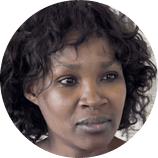
Ndeshi is a Namibian Czech, a successful model who lives long-term in the Czech Republic with her three children and a Czech boyfriend. Ndeshi is the daughter of one of the Namibian educators who accompanied the children to Czechoslovakia. It still bothers her that she only found out about it after returning to Namibia in 1991, as her mother had to keep their family bond a secret for seven years for political reasons. She was to be the mother of all the children, that was the order. Ndeshi feels herself to be "NamCzech", i.e. half Czech and half Namibian. Ndeshi is friendly and supportive, she tries to help not only former classmates who live in poverty in Namibia today but also Namibian children suffering from poverty.
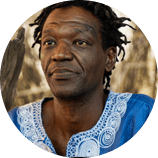
Boro, whose real name is Aupapa, is an African with Czech roots, a fighter for the truth who is not afraid. Even as a small child, he climbed the great heights of mature pines, earning him the nickname "Boro" from others. He adopted this as his real name, which he still uses today. After returning to Namibia, Boro grew up in Usakos with his sick mother who beat him. That is why he decided to flee to the capital, where he lived on the streets for several years. He started out as a marijuana dealer, gradually becoming an important political activist fighting for the rights of exiled Namibian orphans, as well as for the legalization of marijuana in Namibia. More than once, he was imprisoned in Namibia for his political views. Although Boro, unlike other classmates, did not have the opportunity to finish elementary school and continue his studies, he never gave up on further education. Self-taught, he read widely, studying Namibian history and politics to later become one of the biggest public critics of SWAPO's policies. His favorite hobby is chess, he is raising four daughters.
Even after more than 30 years of their lives spent in Namibia, Black Czechs feel a strong sense of belonging to the Czech Republic, which they consider their home. Most of them still speak the Czech language, or at least understand it, and maintain Czech customs, traditions, and European lifestyle. Members of the group meet regularly, either spontaneously or in the form of annual official meetings organized by the Embassy of the Czech Republic in South Africa.
Black Czechs like to follow the political and cultural events in our country, and their lifelong dream is to look back at the country where they grew up. The group is currently seeking, among other things, to make their history in exile part of the national memory and to be compensated and socially rehabilitated as descendants of prominent war veterans and national heroes of Namibia's independence struggle.


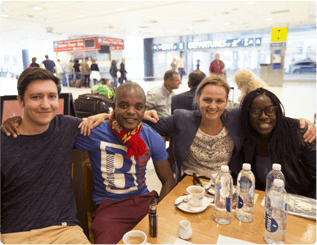
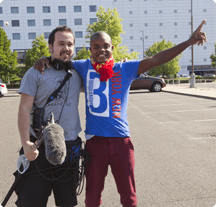

23. 4. 2022
They came to what was then Czechoslovakia to later become the elite in their distant homeland. They went to school here and adopted Czech as their language. But after the fall of the Iron Curtain, 56 child war refugees from Namibia had to return to Africa. Their destinies were charted by the Africanist Kateřina Mildnerová of the Palacký University in Olomouc, and a documentary film was also made about them. You can find the full interview here
22. 4. 2022
The documentary film Black Czechs is heading to Pilsen, where after its premiere in Olomouc, it will also be screened at 7:00 p.m. in the Beseda cinema hall. The capacity of seats in the hall is limited.
4. 4. 2022
Black Czechs is a new documentary film directed by Martin Muller based on the book by Kateřina Mildnerová, which charts the extraordinary fate of Namibian child refugees who grew up in socialist Czechoslovakia, from where they were displaced to Namibia after the fall of the Iron Curtain. The Palacký University in Olomouc feature film, co-produced by Czech Television, will have its ceremonial premiere at the International Festival of Science Documentary Films Academia Film Olomouc in the Museum of National History Olomouc on 28/04/2022 at 20:00.https://afo.cz/en/home/
30. 3. 2022
Where my home is? The Czech national anthem contains the motif of searching and finding home. In former Czechoslovakia, it was found by more than a hundred Namibian child war refugees from Angola, who were accepted there for upbringing and education as an expression of international aid to SWAPO, the liberation movement fighting for the independence of Namibia. Major world events - the fall of the Iron Curtain, the end of the communist regime in Czechoslovakia, and the gaining of Namibia's independence – however, led to the forced relocation of children to Namibia, whose language and culture they did not really know. From day to day they found themselves in the African countryside with unknown families. This book reconstructs the hitherto unknown history of this group of "Afro-Czechs", and tries to understand the complex phenomenon of the formation of their collective memory, identity, and concept of home. However, home constantly eludes them and is somewhere between Czechoslovakia, where they spent their childhood, the Czech Republic, where they are denied Czechness, and Namibia, where most of them now live.
Information about the book:
Kateřina Mildnerová
Černí sokoli - Pohnuté osudy namibijských dětí vychovaných v Československu (In English: Black Falcons - The troubled destinies of Namibian children raised in Czechoslovakia, unofficial title)
Prague, Lidové Noviny Publishing House, 2020.
ISBN: 9788074227448
1. 4. 2022
Traveling allows us to understand otherness, says Africanist Kateřina Mildnerová. December 29, 2021, Větrník - Guest in the studio Interview Marková, Czech Radio Olomouc. You can find the interview at: https://olomouc.rozhlas.cz/cestovani-nam-umoznuje-pochopit-jinakost-rika-afrikanistka-katerina-mildnerova-8649924

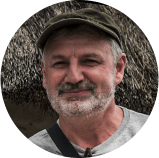
The director of the documentary film is the head of Audiovisual Production at the Palacký University in Olomouc. He studied film and theater at the Palacký University in Olomouc. He worked at ČT as a dramaturg, and later he moved to Studio Velehrad Olomouc. He made his debut with the feature film Hranice stínů (1996), he is the author of a number of social advertisements and TV documentaries - Taky jsem se tady narodil (1999) and Kostel světla (2000). His latest film, co-produced by ČT, is a documentary film about the americanist and emeritus rector of UP Josef Jařab (2019).
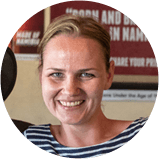
The author of the theme and script of the documentary film is a cultural anthropologist working at the Department of Sociology, Andragogy and Cultural Anthropology of the Palacký University in Olomouc. She has been engaged in anthropological research in sub-Saharan Africa for a long time and is the author of several professional and scientifically popular books. Her latest book, Černí sokoli (2020), deals with the topic of Namibian children in Czechoslovakia.

The film's main cameraman is a graduate of journalism in Olomouc and audiovisual production in Opava. His biggest passion is traveling connected with filming. He is a former external cameraman for Czech Television. Since 2013, he has been creating advertising works, short films, and music videos.
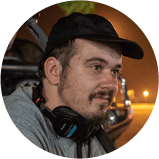
The sound engineer for documentary films has been working as a sound engineer, composer, and sound designer of film, theater, and other projects since 2011. He currently works as a sound engineer at the Palacký University in Olomouc. In his free time, he enjoys music, woodworking, D&D, reading books, and video game creation.

Production assistant, second cameraman, and occasional sound engineer for a documentary film work as a production assistant at the Audiovisual Production of the Palacký University in Olomouc. He is actively involved in theatrical performance and improvisation.

The assistant cameraman of the documentary film studied cultural anthropology at the Palacký University in Olomouc. During his studies, he began to fully develop his lifelong interest in audiovisual production. He applies anthropological knowledge when working with clients and actors. Since 2021, he has been dedicated to his own video production of advertising videos, reports, and short promotional films.